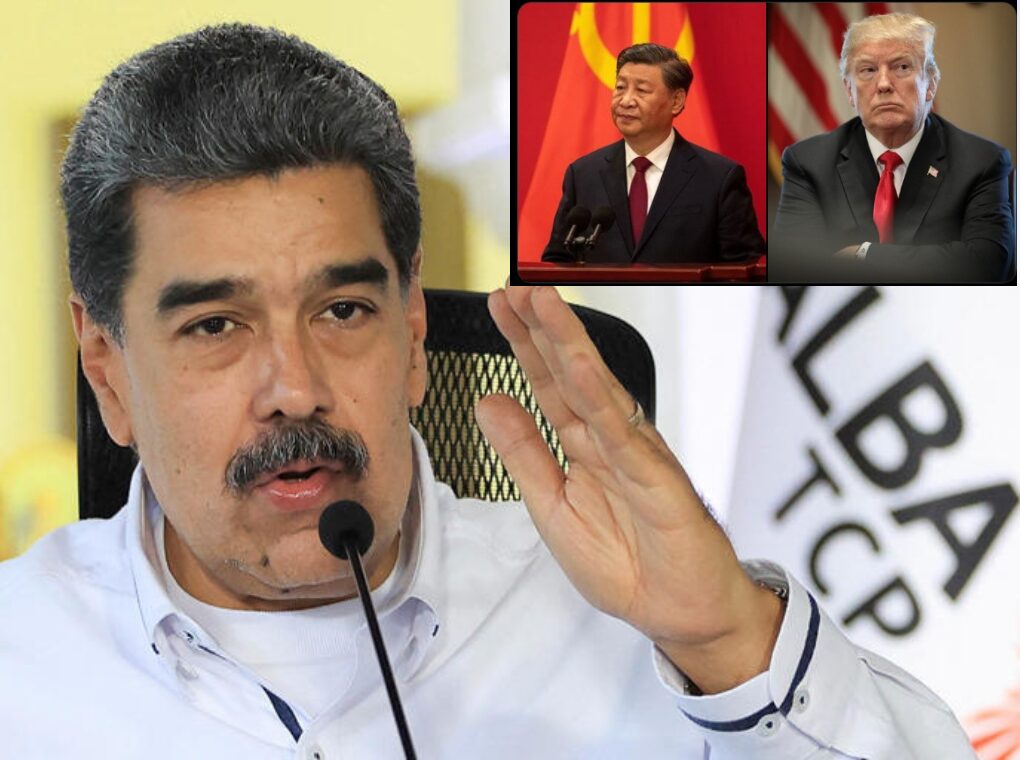Venezuelan President Nicolas Maduro has lashed out at Washington’s latest military maneuvers, thanking global allies for backing Caracas as U.S. warships edge closer to Venezuelan waters. Declaring that “Venezuela will win again,” Maduro accused the United States of preparing an armed conflict in South America and said the world “unanimously rejects imperial aggression.”
The United States confirmed earlier this week that three Aegis destroyers and an amphibious squadron carrying about 4,000 Marines have been dispatched to the Caribbean. While Washington argues the naval presence is aimed at dismantling narcotics cartels in the region, Caracas and its allies call it a thinly veiled attempt at regime change.
The White House further hardened its position by branding Maduro’s government a “narcoterrorist cartel” and raising the bounty for his capture to US$50 million. Press Secretary Karoline Leavitt said President Trump is “prepared to use all American power” to stop drug smuggling and “bring those responsible to justice.”
China Steps In
The most dramatic international response came from Beijing. On Thursday, Chinese Foreign Ministry spokesperson Mao Ning condemned the U.S. naval build-up, warning it risked violating Venezuela’s sovereignty and the principles of the United Nations Charter. She urged Washington to “do more things conducive to peace and security in Latin America and the Caribbean region,” making it clear that China’s support for Maduro goes beyond rhetoric.
In Caracas, Maduro hosted Chinese Ambassador Lan Hu and praised what he called “notable advances” in bilateral projects. He described China as “the country that leads the world with the concept of human development,” underscoring the political importance of Beijing’s backing.
China has poured an estimated US$67 billion into Venezuela since 2007, primarily through oil-for-loan deals initiated under the late Hugo Chávez. This deep financial and political partnership has outlasted sanctions, debt disputes, and shifting energy policies, making Beijing Caracas’s most vital international partner.
Despite scaling back direct crude purchases in recent years, China continues to shield Venezuela diplomatically. Last year, it was one of the first countries to recognize Maduro’s controversial third term, defying U.S. and European criticism of the election process.
Venezuela Mobilizes
Maduro responded to the U.S. deployments by ordering the mobilization of 4.5 million members of the Bolivarian Militia, a civilian reserve force, and suspending all drone flights nationwide for 30 days. “We defend our seas, our skies, and our lands. We freed them. We guard and patrol them. No empire will touch the sacred soil of Venezuela,” Maduro declared in a fiery televised address from Caracas. He also highlighted past U.S. military failures in Vietnam, Afghanistan, Iraq, and Libya, framing Venezuela’s resistance as part of a broader struggle against imperialism.
The show of strength is both a military and political signal. By invoking nationalist themes and mobilizing millions of militia members, Maduro seeks to rally domestic support while warning Washington that Venezuela will not be an easy target.
Regional Response
The U.S. naval build-up has split Latin America’s political leadership. Mexican President Claudia Sheinbaum reiterated her opposition to foreign intervention, stressing that disputes must be solved through dialogue rather than force. Colombian President Gustavo Petro warned that the United States was mistaken if it believed military action could stabilize Venezuela, cautioning of “grave regional consequences” if the crisis escalated.
Brazil, the largest regional power, also voiced concern. Celso Amorim, chief foreign policy adviser to President Luiz Inácio Lula da Silva, said Brazil viewed the U.S. military presence with “worry” and emphasized non-intervention as a fundamental principle of its diplomacy. He argued that organized crime issues should be solved through cooperation rather than unilateral military actions.
By contrast, some governments aligned more closely with Washington. Argentina’s President Javier Milei, a staunch Trump ally, refrained from issuing a formal statement but amplified U.S. Embassy communications on defense and security cooperation.
In Ecuador, President Daniel Noboa ordered intelligence services to investigate suspected cartel links to Venezuelan groups. Paraguay’s Senate went further by declaring Venezuela’s Cartel de los Soles a terrorist organization, a motion awaiting approval by President Santiago Peña.
A Growing Geopolitical Flashpoint
The Venezuelan crisis is rapidly evolving into a broader geopolitical confrontation. For the Trump administration, Venezuela is framed as both a narcotics threat and a test of American resolve in its own hemisphere.
For Maduro, the confrontation offers a chance to galvanize nationalist support and showcase Venezuela as a frontline of anti-imperialist resistance. For China, the standoff provides another opportunity to challenge U.S. dominance abroad by offering diplomatic cover to one of Washington’s most entrenched adversaries in Latin America.
With regional powers split, Washington escalating its military posture, and China solidifying its alignment with Caracas, the crisis risks deepening into a prolonged standoff. Whether it leads to confrontation or forces negotiation, Venezuela has once again become a crucible of great-power rivalry, testing U.S. influence and Maduro’s resilience on the world stage.
